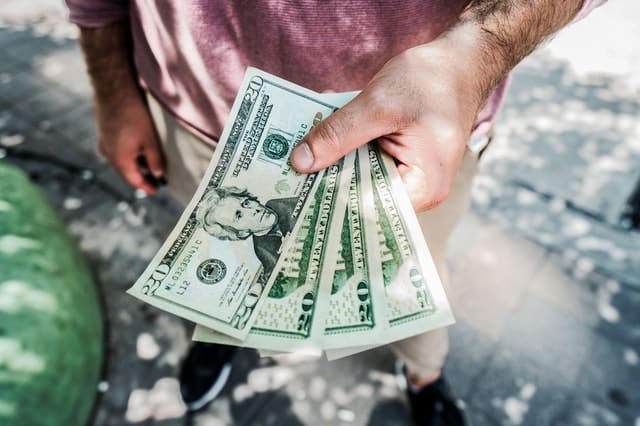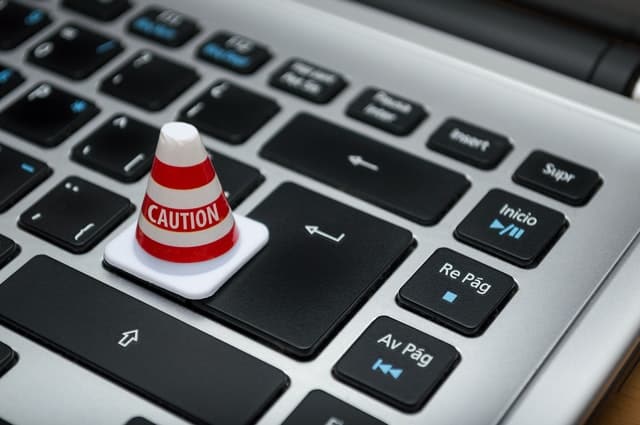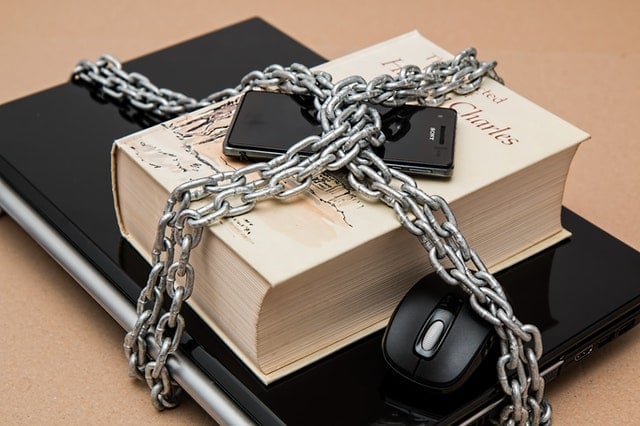Privacy Protection and Copyright: The Legal Side of Writing a Biography
May 11, 2021
Biographies are perennial bestsellers. Depending on the subject, biographies can turn an author into a household name almost overnight.
However, a biography can also leave an author with serious legal issues if they don’t approach the project in the right way. Authors also need to be objective in separating fact from opinion as they are accountable for the information they share.
Indeed, writing a biography is no easy task and must be done right, to avoid any problems along the way.
In this article, we will focus on the relevant privacy and copyright issues that may arise when writing both authorized and unauthorized biographies.
Biography Basics

According to the Merriam-Webster dictionary, a biography is “a usually written history of a person’s life.” This definition encompasses accounts of a person’s life based on first-hand or second-hand information.
Moreover, biographies belong to the domain of non-fiction unless the events and characters surrounding actual events are fictional.
When it comes to biography sources, second-hand opinions, anecdotes, and experiences must come with documentation. For instance, interviews, videos, or even legal paperwork can substantiate claims.
Additionally, opinions must be carefully marked as such to ensure they do not constitute an attack on an individual’s character or reputation. After all, a biography should aim to tell an unbiased account of a person’s life.
Biographies can depict the lives of both living and deceased individuals.
Biographies of long-deceased historical figures often contain information extracted from previous works or otherwise in the public domain. In these cases, the risk for legal challenges is rather slim.
However, biographies of living or recently deceased figures may represent a legal challenge as there may be privacy protection and copyright issues involved.
Authorized vs. Unauthorized Biographies
There are two main types of biographies: authorized and unauthorized.
Authorized biographies have the consent of the book’s subject or their family or, at the very least, some collaboration from the subject or their representatives.

Unauthorized biographies, on the other hand, do not have the consent of the subject in question. These types of works often have salacious leanings, focusing on selling books first and the subject’s reputation second. Depending on the material's information, the author may face legal action by the subject or their representatives.
Legal Authorization for Writing a Biography
Ideally, authors would set about writing a biography with the full consent of the subject or their estate. Doing so provides the author with the confidence of knowing they will not face legal challenges once the work reaches publication.
Obtaining legal authorization generally involves writing material that has the subject’s seal of approval.
It is worth noting that authorized biographies usually require the author to paint the subject in a favorable light. While this isn’t always the case, subjects may require authors to remove certain events or information from the material if it is too salacious.
In the words of New York Times columnist Matt Knight, an authorized biography “suggests a puffy publicity piece.” As such, readers often view authorized biographies as skewed toward favoring the subject.
According to Writer’s Digest, a leading writer resource publication, in an authorized biography, “the author typically holds interviews with the subject of the book, the subject’s family members, and friends, co-workers, etc. The author is privy to information only attainable from the subject of the book.”
Thus, authorized biographies have an added layer of credibility that unauthorized ones do not.
Additionally, authorized biographies may require the author and publisher to share a portion of the revenue with the subject. In the event the subject is deceased, profits would be shared with their heirs or estate. As such, it is often more difficult to get authorization from a living subject than an estate.

To quote renowned literary critic Leon Edel:
“The secret of a biography resides in finding the link between talent and achievement. A biography seems irrelevant if it doesn’t discover the overlap between what the individual did and the life that made this possible. Without discovering that, you have shapeless happenings and gossip.”
Indeed, an authorized biography has a greater degree of credibility as it allows the author to portray the real person and not a public persona surrounded by gossip and hearsay (as long as the real person doesn’t have too much dirty laundry).
As far as publishing goes, traditional publishing houses generally require consent from the subject before the publication of a biography. Generally speaking, this position is due to credibility issues.
This makes it essential for authors to ensure they are providing accurate information. Otherwise, readers may dismiss the book due to false or inaccurate claims.
Risk is also an important consideration for both publishers and authors. Although the First Amendment covers authors in the United States, inaccurate information or misrepresentation of an individual can lead to serious legal consequences.
Therefore, authorized publications provide the safest means of producing a biography. Overall, this gives the book greater credibility while ensuring legal protection for all parties involved.
Writing an Unauthorized Biography
The heading for this section could easily read: “Proceed at your own risk.”

As its name suggests, an unauthorized biography does not have the official blessing from the subject or their representatives. As such, the author must proceed with caution as they would most likely have no cooperation whatsoever from the person who would otherwise be the primary source for their project.
Consequently, the author may have no way to corroborate the information presented in the book directly, which is the main reason why unauthorized biographies tend to contain information based on unreliable second-hand sources such as “insiders” or “people with knowledge.”
Critics point out that unauthorized biographies tend to have a sensationalist tone meant to generate buzz surrounding the topic at the expense of the subject’s reputation. To quote renowned biographer Kitty Kelley:
“Whether authorized or unauthorized, a good biography is nuanced and complex, because that is the way most people are. Being imperfect, most of us are messy and mixed-up in our private lives, inconsistent in our intentions, misled in our motives, and contradictory in our actions. Powerful public figures seem to have even more exaggerated faults and frailties, probably because their legions of publicists have spent years bleaching out the stains. The most authentic parts of a life are often quirky and filled with secrets that might startle the admissions committees of colleges and country clubs.”
Indeed, an unauthorized biography frequently paints the subject in an unfavorable light. While this assault may not have explicitly malicious intent, the point is to sell books, even if it is at the subject’s expense.
There are three main concerns when it comes to writing an unauthorized biography.
First, there is the question of libel. Libel is the use of information, usually hearsay or gossip, that damages an individual’s reputation.
Generally speaking, this information emanates from undisclosed sources or unsubstantiated information. Therefore, the publication of such information is defamatory and can lead to a lawsuit.
Authors may argue that personal opinions are factual. However, this defense is vague, especially if the overall statements are false or unsubstantiated.
While libel cases do not generally go far in court, such cases may damage the author’s reputation and hurt sales as a result.
Next, unauthorized biographies may constitute an invasion of privacy. If the author obtains information for the book using duplicitous or illegal means, the subject may have a legitimate court claim.
For example, if the information obtained emanated from hacked email accounts or bribed staff, such information would constitute an invasion of privacy. However, if the author obtained the same information lawfully via public record, an invasion of privacy claim would not be valid.
Lastly, the subject of an unauthorized biography may claim misappropriation of their likeness and any of their trademarks and copyrights. This claim occurs when authors and publishers use the subject’s name and likeness directly to promote the work, including trademarks and copyrights.
For instance, unauthorized biographies cannot use pictures of the subject on the cover unless the photographs are in the public domain. Moreover, authors and publishers need to include a disclaimer indicating the subject did not cooperate to create the content.
Biographies and PrivacyProtection

Privacy protection is a significant issue for public figures. After all, it is hard to define the extent to which a public figure’s life is public and what should remain private.
In general, intrusion on a person’s privacy is the result of obtaining information through unlawful means. While intrusion itself is not a crime, any false or fraudulent activity used to gain access to private information could be prosecuted as a felony.
Mark Zuckerberg, the founder of Facebook, once said, “The question isn’t ‘What do we want to know about people?’ it is ‘What do people want to tell about themselves?’”
Indeed, privacy is about what individuals want to tell others about themselves instead of what other people wish to know.
This implied breach of privacy is the reason why public opinion considers unauthorized biographies unethical as they profit from commercializing unflattering personal details.
Even if you can lawfully obtain this type of information, popular opinion considers it inappropriate to benefit from the more personal struggles a public figure might go through, including divorces, addictions, and other similar scandals.
Furthermore, copyright infringement is a serious matter. For example, the use of content extracted from quotes, letters, writings, emails, books, interviews, and so on, without the copyright owner’s consent, can lead to serious legal consequences.
Copyright holders almost always contest the use of images, brands, names, and likenesses without permission. As such, authors and publishers face the risk of being sued if they are not extremely careful with their content.
It is worth stating that the fair use principle does not apply if the author and publisher use personal information or copyrighted materials for commercial purposes.
And even First Amendment rights are moot if the intent to profit from a publication is apparent.
In these instances, the subject of the unauthorized work may seek fair compensation, particularly if their reputation suffered as a result of its publication.
One key consideration in this discussion is breach of confidence. This phenomenon occurs when an individual is privy to information on a public figure and then discloses it without consent.
Disclosure of confidential information is illegal in cases where doctors, lawyers, or employers reveal personal information about an individual. In professional circles, these types of actions generally result in a revocation of a professional license.
Is It Worth the Trouble?
At this point, it’s fair to ask, “Is it worth the trouble writing an unauthorized biography?”
The answer depends on the intent of the author and the publisher.
Unauthorized biographies for strictly commercial purposes are generally not worth the risk of legal action. On the other hand, an unauthorized work for entertainment or informational purposes may not trigger a lawsuit but may damage the reputations of the author and the publisher.
It is best to take into account potential privacy and copyright matters before publishing such a work.

Whenever possible, content with the subject’s consent is the best option. However, if an author or publisher feels compelled to publish an unauthorized account, they should proceed at their own peril lest they risk facing severe legal challenges.






























